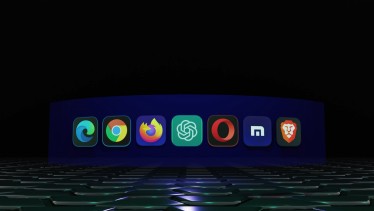Three functions within network management are essential to ensuring a smooth flow of traffic within your network. These are known collectively as DNS DHCP IPAM (DDI).
A good DDI network definition entails the use of a software solution that incorporates all three essential networking processes.
Rather than individually using a tool to address each network need, a DDI solution effectively completes the entire process. This is particularly useful because it simplifies what you need to do and provides the greatest value for money spent.
With this in mind, you should understand what functions DDI consists of. We'll explain the core aspects of DDI and how it all comes together below.
Domain Name System (DNS)
The first function of DDI is oversight of the domain name system (DNS).
The DNS is responsible for translating domain names into IP addresses. A domain name is the URL of a website you type in an internet address bar.
On the other hand, an IP address is the language that computers and servers use to communicate. The problem with IP addresses is that they are a sequence of numbers, which can make them hard to remember.
To solve this, domain names exist to simplify searching for the right website. This gap must then be bridged using the DNS to convert the domain names into computer-readable IP addresses.
When a user wants to search for a domain, this is known as a DNS query. A DNS response is given that directs them to their intended website.
As you can see, the DNS is essential for communication between users and servers. Without it, you'd be forced to memorize specific numbers to reach your desired site.
Dynamic Host Configuration Protocol (DHCP)
The next core process involves the dynamic host configuration protocol (DHCP).
This involves the use of a DHCP server that gives each user and device an IP address. While a website has an IP address, so too does any user that connects to a network.
Anytime a user tries to connect to a network, they must be given an IP address so they can be identified. This is important because two users with the same IP address will result in network errors.
DHCP simplifies the assignment of IP addresses by automating the process. Rather than manually assigning IP addresses, which is prone to error, it will be efficiently handled under protocols you establish.
The other aspect of DHCP is setting configurations. For your network to understand that a device is permitted and enabled to communicate, configurations must be set. DHCP will automate this so that new users can seamlessly use the network.
Considering this, DHCP is a great tool for minimizing downtime and ensuring all hosts can accurately be identified.
IP Address Management (IPAM)
Finally, DDI includes the process of IP address management (IPAM).
DHCP is responsible for assigning IP addresses, but it does not oversee them. Instead, this is done through IPAM.
IPAM touches all other aspects relating to a network's IP address. This includes tasks like modifying DHCP settings, ensuring enough IP addresses are available, correcting IP address complications, and creating DNS reports.
The IP addresses interacting with your network must be tracked so that you understand what's happening at a given time.
For example, there may be an unknown IP address in your network that turns out to be a hacker. IPAM can be used to detect and isolate the user so that it can't gain further access.
Without IPAM, you won't understand the devices in your network and what should and shouldn't be there.
DDI Collectively
Putting this all together means that a DDI solution will effectively handle the DNS, DHCP, and IPAM.
This entails the full cycle of interacting with the network. The DNS is necessary for translating domain names into IP addresses, which are assigned by DHCP, which is configured through IPAM.
As you can see, all three functions are relevant and depend on each other to work. With separate tools to satisfy each need, you may encounter communication errors between software or hardware. This is why you need a solution that individually accomplishes all three functions.
Closing Thoughts
DDI is an important term that refers to the essential functions for keeping your network running. While these can be done individually and manually, it is far more effective to use a DDI solution that can effectively manage your network from top to bottom.
The three main functions of DDI include overseeing the domain name system (DNS), dynamic host configuration protocol (DHCP), and IP address management (IPAM). Together, DDI consists of DNS, DHCP, and IPAM processes.
If you want to improve the performance and reliability of your network, then a DDI tool is your best resource.




















